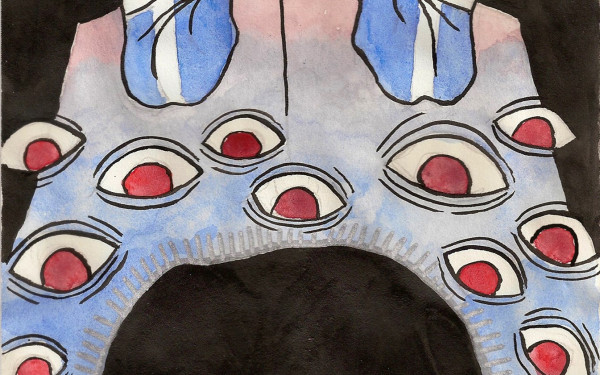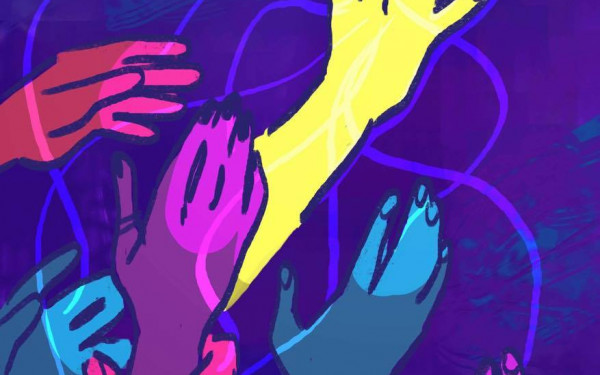Threats Won’t Intimidate Our Muslim Students
MSA Concordia’s Islamic Awareness Week Goes on Despite Terror Threat
Instead of being intimidated by threats toward his community, Bara Abuhamed of Concordia’s Muslim Students Association said its members were motivated to keep working towards their main goal—to dispel misconceptions of what Islam is.
A letter threatening to set off a bomb in two of Concordia’s downtown buildings was sent to MSA, and to various media outlets on Wednesday. The letter, sent by a group called the Council of Conservative Citizens of Canada, who was later referred to as C4, warned that if the university did not halt all Muslim activities at once, a bomb would be set off sometime between Wednesday and Friday of last week.
The threat coincided with the group’s Islamic Awareness Week, an event with the main purpose of teaching about Islam. Abuhamed, the association’s VP External, was on the Sir George Williams campus when they received the threats.
“It was shocking,” Abuhamed said. “It’s something we’re not used to seeing on Concordia grounds.”
MSA president Hamaad Nami told his members to remain calm and let the university take care of things. An evacuation and police sweep of the EV, GM and Hall buildings followed at around 11:30 a.m., about two hours after the threats were received.
On Wednesday evening at 6 p.m., the school reopened and classes resumed despite the letter threatening to attack the school until Friday. A Friday meeting for the Concordia Council on Student Life scheduled to be on the downtown campus was moved to Loyola, “considering some people may feel nervous about the statements in the media regarding the rest of the week.”
On an individual basis, many professors were understanding and flexible with students who had concerns about the threat even after the SPVM investigation, according to Abuhamed.
Since then, Hisham Saadi, a PhD at Concordia, has been arrested and charged with inciting fear of terrorism for having sent the letter. The MSA called for the SPVM to investigate these events as a hate crime.
Islamic Awareness Week events continued despite the letter, which included detailed descriptions of Muslim prayers that take place on the Hall building’s seventh floor.
“Even though they had a lot of errors in what they said, and a lot of exaggeration, […] it’s either a student or someone who shows up to Concordia,” Abuhamed said.
The MSA went on with Islamic Awareness Week because its members knew the support from the Concordia community was greater than the hatred.
Posters explaining different facets of Islam were set up in the EV building, including information about women and the environment from an Islamic perspective. The association served samosas, cotton candy, and Krispy Kreme donuts. MSA also set up chairs in case people walking by wanted to ask its members any questions.
“We have a simple conversation just to build those connections and build those bonds,” Abuhamed said.
The letter intended to terrorize and incite fear had the opposite effect on the MSA—its members felt a sense of motivation, according to Abuhamed. The misinterpretations in the letter were a perfect example of exactly what the MSA was trying to stop.
“The reason why people hate one another is because they don’t have enough knowledge, they haven’t had an interaction with that person.” – Nevin Hoque, president of MSA Dawson
After Wednesday, Abuhamed said many more people showed up to Islamic Awareness Week in the EV building. The interactions were deeper, he said, and people wanted to know not only about the threats, but about Islam itself.
“For such misconceptions to happen, for one to be able to tell between what’s the truth and what’s not the truth [about Islam], they need to have facts, and that was the whole purpose of Islamic Awareness Week,” Abuhamed said.
Conversation and communication are crucial to MSA. Abuhamed said the threat wouldn’t have happened had the problems been brought to the association first.
“No one came up to us to tell us, ‘We’re uncomfortable with you,’” he said. “Because if they did, we would have given them the time to discuss those concerns and we would have come up with a halfway point where everyone is satisfied.”
In December, a similar Islamophobic instance took place at Dawson College during their Muslim Students Association’s Islamic Awareness Day. After a Journal de Montreal article was published featuring a photo of MSA Dawson member Samar Eldabaa wearing a hijab, she was subject to online harassment.
The college also received about a dozen online complaints—their main issue was that Dawson’s MSA offered students the chance to try on the hijab. A CBC article showed the cyber crimes could have been connected to far-right group La Meute, who organized in front of Montreal City Hall on Saturday, in protest of a motion condemning islamophobia.
“La Meute did not instruct its members to make complaints to [Dawson] College,” Sylvain Malkan, spokesperson for La Meute wrote in a message in December. “It is possible that some members of La Meute did it by personal initiative and that is their right.”
Malkan added that the group wants Muslim associations to “present to us all side of Islam” when awareness events take place. “As they do not, La Meute will take care of it.”
MSA Dawson’s President Nevin Hoque said that similarly to Concordia’s MSA, more people have been approaching his association to ask questions since these events took place.
“Because of these Islamophobic events, it’s gaining more awareness about our religion and we’re able to voice out the real story about Islam,” he said.
Since the harassment, Dawson’s association has been continuing to organize events—like women’s week, which begins on Wednesday, March 8. The MSA has been collaborating with other clubs, and have their own Islamic Awareness Week coming up.
Hoque said the best way to end these racist and Islamophobic instances is to be open and collaborate with other people.
“The reason why people hate one another is because they don’t have enough knowledge, they haven’t had an interaction with that person,” he said, adding that seeking knowledge is an important way to combat stereotypes.
Both MSAs have the goal of building bridges with other communities.
Homa Hoodfar, an anthropologist at Concordia, and expert on Muslim women’s status in the West, said the problem is, in the context of globalization, that we tend to focus on differences rather than commonalities, in an interview in response to the events at Dawson.
In this multicultural society, she added, it’s important that to realize that some things are harmless to the public, like a woman wearing a hijab.
“You might not like the sight of women wearing the veil or the Sikh wearing their turban, [or] the sight of people wearing 25 earrings,” Hoodfar said. “But tough luck, it’s not interfering with my life and it’s not interfering with the way they want to live.”
She added that these disagreements do not mean we shouldn’t respect each others’ choices.
“I think the problem with the far right is that they dwell on differences because of their political stance, because they want everyone to be like them. If they didn’t have immigrants, they would go after [others]” she said.
Despite these events—and because of them—the MSA Concordia will continue building connections and bonds to keep all people united, Abuhamed said.
“We’re here to stop [this] from happening again, because the more people know the truth, the less the chance is that people have such misconceptions that will lead to such violence.”

_900_567_90.jpg)
_900_645_90.jpg)

_600_375_90_s_c1.jpg)


